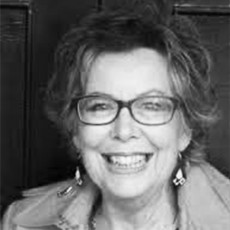
Maxine Gay makes it a priority on the Ringa Hora Council to ensure present and future workers are never forgotten when looking at workforce development.
Following a high profile career advocating for workers in various positions with trade unions, Maxine has brought her passion for social justice, collective and individual development to Ringa Hora during her time on the council.
“Often the voice that’s missing is the worker’s voice when big plans or changes of course are made,” she says.
“I think it is actually vital to have the subjects’ voice at the table at all levels, including when the credentials are being developed. Otherwise it’s something that’s done to people,” she says.
Like many people who undertake vocational education, Maxine first joined the workforce without tertiary qualifications, as a driver for executives at the Hawke’s Bay carpet manufacturer UEB. Soon she moved into the office in the dye house and then the payroll office, discovering she had a good ability with numbers.
It was there, in the 1970s, that her career path was sparked by an inspirational speech at a union meeting by pioneering New Zealand union leader Sonja Davies.
“I was bored for the most part, but then I heard Sonja speak and I was electrified,” she says.
“As we left, the PA to the chief executive said ‘that woman was wicked’. I said ‘how?’, and she said ‘she leaves her husband and kids and runs around the country causing trouble’.
“I thought ‘hmm, that sounds like the kind of wicked that I’d quite like to do.’”
Eventually Maxine, then a young mum with two boys, found her way to Palmerston North and took on various jobs for organisations like the YWCA and Palmerston North City Council.
She progressed well and eventually found herself at a crossroads in her career.
“I got offered a job to be the personnel officer at the city council at a pretty decent pay, or to be an organiser with the Clerical Workers Union at rubbish pay, and I took the Clerical Workers Union job.
“I had been introduced to a lot of ideas about feminism, and I felt the best way to get independence for women was for women to become economically independent. Unions were a vehicle by which I could bring feminism into unionism and work.”
It began a 35-year career in unions, in which she held numerous leadership roles, and she represented New Zealand unions at a variety of international forums, including the International Labour Organisation.
It was during her time at Palmerston North that Maxine also took up a number of educational opportunities to upskill while she was working, which drove her advocacy for vocational education.
“I’m a product of New Zealand’s second chance education, and so I’m really passionate about education and its availability to working people.
“All the way through my whole life really has been working closely within for marginalized and dispossessed people, and I have seen education as the key. I think the combination of workplace and classroom learning is absolutely potent.”
This interest also led Maxine to represent working people with the services industry training organisation Service IQ. Later she was involved in the design of Workforce Development Councils, and subsequently joined the Ringa Hora council.
Given her focus on people who are more marginalised in society, Maxine is particularly happy to be involved with Ringa Hora as many people find their first jobs in the Service sector.
“Service sector jobs are the kind of nursery industries, where people start and then learn to be workers before moving into other jobs. But we’ve also had success in showing that service sector jobs can be fulfilling in their own right, and that they can lead to wonderful careers including people running their own businesses,” she says.
“It’s been great to see how Ringa Hora has developed and the difference it’s making. It was an absolute joy to read this year’s annual report to see how far we have come as an organisation. I am incredibly proud of our people.”
